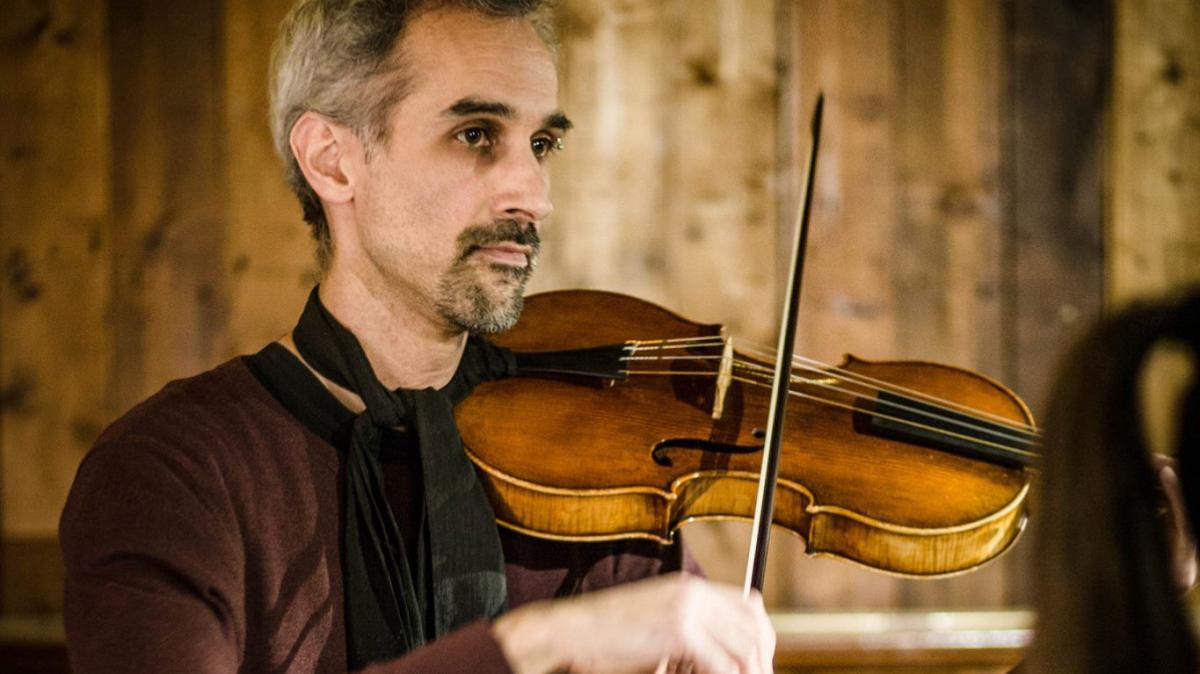Artistic doctorate: Krishna Nagaraja composes contemporary music at the crossroads of different genres
Nagaraja has explored the history and characteristics of Nordic polska tunes in their local variants as basis for the composition of new works.

Nagaraja uses composition as a tool to construct temporary “musical homes” in the interstitial spaces between genres, influences, and research areas. Nagaraja’s artistic doctorate Polska Travels: Composing (at) the Crossroads is examined at the Sibelius Academy, University of the Arts Helsinki, on June 20th, 2022.
Nagaraja is a violinist, violist, arranger, and composer, who approaches music from many different directions. His artistic doctoral project comprises four concerts, a recording, and a written thesis. Nagaraja studies specific strands of Nordic folk music and their relationship to elements coming from outside their boundaries, such as Western art music and other genres. Nagaraja also explores his own artistic identity in relation to the collective bodies of traditional knowledge he studies. He suggests the use of interconnectedness as a resource to answer the challenges posed by the rising globalisation of our culture.
Identities and traditions in the eyes of an outsider
From its early baroque origins to the present-day regional variants, the polska has enjoyed one of the most diverse developments known in European folk music: a history of migration, evolution, contamination, crossing of geographical and social boundaries. Nagaraja approaches the phenomenon from his threefold artistic research standpoint in folk, baroque, and contemporary music. Each of his doctoral concerts articulates the ongoing dialogue between these genres through a different interaction and focuses on a specific geographical or temporal frame: the Polish-German baroque origins, Finland, Sweden, and Norway.
“I see borders as areas where different identities dissolve into one another. Boundaries are lines we construct to orientate ourselves in the vast ‘Otherness’ that surrounds us. I believe that boundaries, definitions, and labels are useful but imaginary. They are models of reality, not to be confused with reality itself”, Nagaraja explains.
In his thesis, Nagaraja analyses his last doctoral composition, addressing research topics such as the history of the polska, the discourse of “folk” and “art” music, the necessity of mixed methodological approaches in interdisciplinary projects, and the quest for a personal musical language inspired by established traditions experienced as an outsider.
“The divides between purity and contamination, preservation and innovation, authenticity and corruption may hinder or develop the cultural discussion. It is my wish for my own art, and for any art exploring similar territories, to acknowledge the potential biases produced by such dichotomies, while at the same time progress towards the formation of a conscious, bold, and open body of ‘contemporary music’.”
More information
Krishna Nagaraja
krishna.nagaraja@uniarts.fi